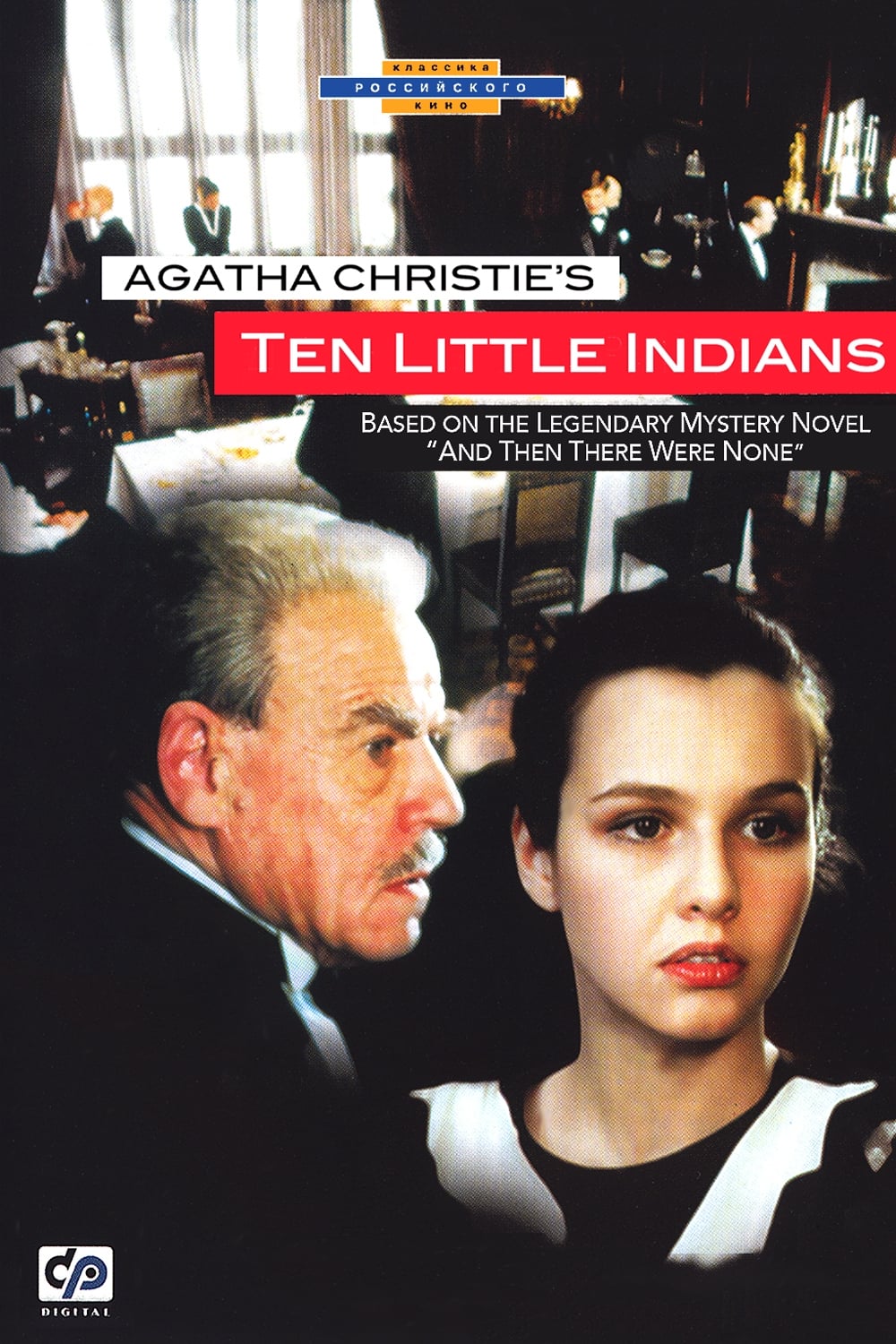
A disturbing psychological thriller based on the classic novel by Agatha Christie. Ten strangers are forced to come face to face with their dark pasts after receiving an anonymous invitation to an isolated island off the coast of England.
03 Mar Ten Little Indians (1987)
Invasive
You are not likely to find this easily. It is ‘Desyat negrityat’ in its original Russian (Десять негритят), being a comparatively faithful adaptation of an Agatha Christie mystery.
Some context why this is interesting. The book is allegedly the largest selling fiction book in the world. The film was made in the period between the collapse of the Soviet empire, and the current (2024) period of multiple armed invasions — a time when the hope of ordinary Russians was to be accepted into and integrated with the modern world.
If you have not seen my comments on the detective genre and film noir, you will not appreciate how I come to these and why. The detective novel was a profound innovation in fiction where three narrative stances were played against each other: the world as we spy on it, the writer (and later filmmaker), and an in-story detective.
The contract is between the viewer and filmmaker where each struggles against the other to construct a narrative. Both are rewarded. Each can build a life on this adventure. There’s an intimacy in this relationship that when done well penetrates deeply. I’ve developed it as a theory of noir, but that is irrelevant to the actual experience.
The book was originally named ‘Ten Little Niggers’ because it uses a counting song that the readership would know as a central plot device. Both the book and the song were quickly recast as ’Ten Little Indians,’ only slightly less racist. This Russian film though has no such sensitivity. It is ‘niggers’ throughout, plus some vile caricatures in the mini figures that are featured.
The location in this film is truly apt, perfect. And the sea when it needs to be rough is shown to be so — to such an extent we worry for the actor’s safety.
This is also where I should note that this is a twist on the well established ‘remote house’ detective genre, where it is clear that the murderer is amongst the pool of diminishing survivors. Christie used this a lot, and while she is not known for character development, she was a master at the subtleties of class tension. Here, there is a curious decision; everyone is their original British construction with roles and lines, but the pretence is that they are Russians from a system with a different set of power structures. When Christie mapped the ten guests to ’niggers’ she knew what she was doing. Dissonance appears from class dynamics being imposed on a different society as if that’s what they want.
I’ll note below the prominent role played by Tatyana Drubich, looking and acting like a young Ingrid Bergman. A famous beauty, she was at the time married to the leading Russian upstart filmmaker, and from this period was the ‘object of desire’ in some Russian counterculture films that (mostly in the plot) subverted Soviet norms. She would have been recognised as representing that womanly ideal of 60 years of propaganda and nation definition, but modernised.
Her character is Vera, a middle domestic, a nanny. The backstory is that she was lover of a man who would inherit a large estate, were it not for a new male child that was in Vera’s care. She lets the child drown. Presumably, she was dumped by the aristocratic cad. In some film versions, Vera is innocent and survives. Not here. She is multiply haunted by boy, man, and situation.
In fact, one massive deviation from the book involves her relationship with one of the male guests. In the book it develops romantic overtones as they are the last two victims, with one (the man) having a gun and each suspecting the other of being the murderer. Sex, power, class, suspicion. A powerful mix. The change here is that the night before, Vera was frightened and took refuge in Lombard’s room. He rapes her. Needless to say, the rape is added by the Russians — a notable, rare, change to an otherwise faithful adaptation.
The rape sticks in my mind, overlain with my knowledge of the Russian trajectory since. When I watch a detective film, and particularly a Christie one, I am more open than usual and this was painful.
Vera ends shooting Lombard (as in the book). She hangs herself, the only one of the nine victims not murdered, also as written. But the sexual anguish is what penetrates, overwhelming the more intricate investment I’ve made. I feel invaded.
Posted in 2024
Ted’s Evaluation — 3 of 3: Worth watching.


No Comments